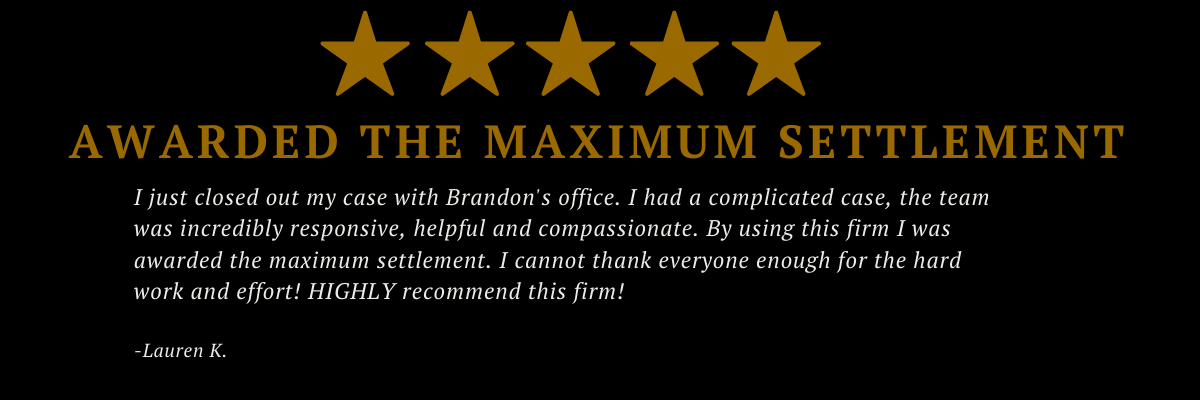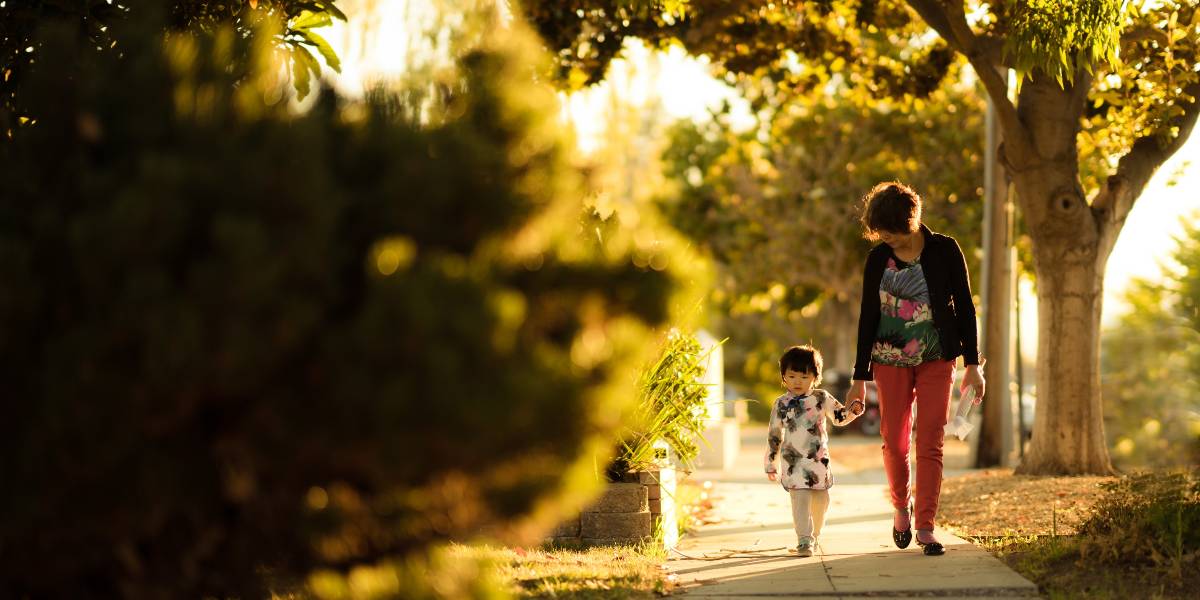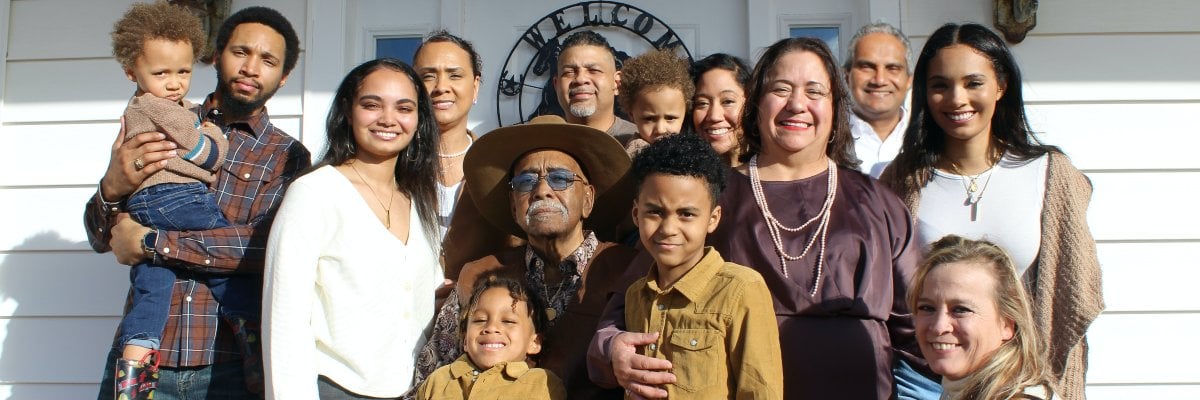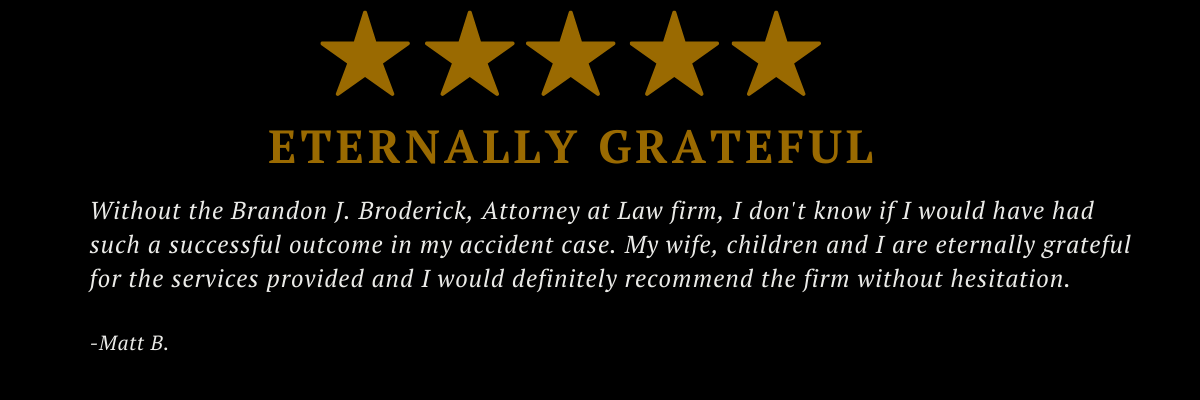Losing a loved one is an emotional and agonizing experience made even worse if the death was caused by someone else’s negligence or recklessness. You may feel angry and seek to hold someone accountable for the death and to prevent others from suffering the same fate. You may be struggling to figure out how you and other survivors will support yourselves or make up for the financial losses and expenses brought on by your loved one’s passing.
For family members, you may have heard of wrongful death lawsuits and want to know how they work. While no amount of money can replace your loved one, a wrongful death lawsuit seeks monetary compensation for the losses associated with the victim’s death from the negligent person or entity that caused the death. An experienced New Jersey wrongful death attorney can represent you and your family in a wrongful death claim.
At Brandon J Broderick, Attorney at Law, we approach every case with compassion and empathy. Our New Jersey wrongful death law firm understands what it takes to build a case and aggressively litigate your claim to get you and your family the compensation you deserve. Our compassionate client care and honest, straight-forward approach help make us one of the top-rated personal injury firms in New Jersey. We fight for your best outcome so you can focus on your family and recovery.

Throughout this article, we are going to give an easy-to-digest overview of information regarding wrongful death lawsuits in New Jersey:
Brandon J. Broderick is Here for You 24/7
Who Can File a Wrongful Death Lawsuit?
Settlements and Compensation in New Jersey Wrongful Death Lawsuits
How Do You Prove Wrongful Death?
What Happens in a Wrongful Death Lawsuit
Deadlines for Filing a Wrongful Death Claim in New Jersey
New Jersey Wrongful Death Lawsuits FAQ
Brandon J. Broderick, Attorney at Law: Peace of Mind for You, Justice for Your Loved One
New Jersey Wrongful Death Attorneys, Brandon J. Broderick, Here for You 24/7

By your side.
When a loved one dies in an accident or in an incident that should never have happened in the first place, surviving family members often have feelings of anger, frustration and worry over what happened. The wrongful death attorneys at Brandon J. Broderick, Attorney at Law, prioritize client care, compassion and communication. We are your trusted partner who’s got your back throughout the process.
Experienced negotiators and trial attorneys
Brandon J. Broderick, Attorney at Law, will build your case by collecting evidence, interviewing witnesses and experts to prove the other party’s negligence. By handling the details and negotiations with the at-fault party, insurance company, and others, our law firm relieves you of this tedious burden, allowing you to focus on what really matters. And, if an agreeable negotiation can’t be had, we won’t hesitate to take the case to trial -- and win.
You deserve to recover compensation for your loss.
If your loved one died in an accident caused by negligence, you have the right to be compensated for your losses. Along with your grief, you may be dealing with severe financial strain as the losses and expenses mount. Don’t go it alone. Our compassionate wrongful death attorneys will pursue the maximum award for your damages.
We offer free, confidential legal consultations to understand what happened and advise you of your options. If you choose to move forward, we work on a contingency basis which means that we only get paid if and when you receive a settlement. Many of our clients feel a sense of relief once they make that first phone call.
Call (877) 448-7350 for a free, confidential legal consultation
What is Wrongful Death?
A wrongful death claim can be filed when one person’s death occurs as the result of the negligence, reckless behavior, or violent behavior of another individual or entity. It’s important to note that a wrongful death claim is a civil action, not a criminal prosecution by the state. It’s possible that both a civil wrongful death claim and a criminal charge could be brought against one person or entity. A wrongful death claim awards monetary damages to the victim’s family while guilty verdicts in a criminal case could result in the incarceration or probation of the defendant.
There are many scenarios in which negligent actions can lead to someone’s death from an accident or illness. Examples of situations that are common in wrongful death lawsuits include:
- Car Accidents
- Slip and Fall Incidents
- Medical Malpractice
- Toxic Exposure
- Truck Accidents
- Pedestrian Accidents
- Construction Accidents
- Workplace Accidents
Each case is unique and the liable party depends on the scenario. For instance, in a car accident the at-fault driver could be held liable. Or, an employer could be negligent in their safety protocols which caused the death of an employee. These scenarios are just examples. If the death of a loved one or family member was caused by the negligence of another, you may be able to bring a wrongful death claim.
Think you have a case? Call now for a free legal consultation
Who Can File a Wrongful Death Lawsuit in New Jersey?

Every state has different laws involving who can bring about a wrongful death claim and what compensation is available. In New Jersey, the executor or administrator of the estate must file the claim. In the event that the deceased person did not have a will, the representative of the estate will be appointed by the probate court. The executor of the estate can file a wrongful death lawsuit on behalf of the following survivors:
- Spouse
- Children, including adult children
- Parents
- Grandchildren
- Siblings
- Nieces and nephews
- Other relatives or friends who can prove they were financially reliant on the deceased victim
Typically, there is a hierarchy of sorts in beneficiaries of the wrongful death claim. The spouse and children of the victim are first in line, followed by parents of unmarried, childless victims and then other dependent relatives. If successful, the wrongful death claim is not part of the victim’s estate and the heirs are awarded compensation directly. Thus, compensation from a wrongful death claim is not subject to creditor claims on the deceased person’s estate.
In many cases, a survivor action may also be part of the lawsuit, which compensates for the pain and suffering, medical expenses and lost wages the decedent themselves suffered after the accident, but before they died. Unlike the wrongful death claim, if successful, these awards go to the victim’s estate and are subject to creditor claims.
Settlements and Compensation in New Jersey Wrongful Death Lawsuits

There are several complex aspects to a wrongful death lawsuit which is it’s always a good idea to consult with an experienced New Jersey wrongful death law firm about your specific situation. Generally speaking, a wrongful death claim is intended to provide compensation to the surviving heirs for the loss of their loved one. In New Jersey, surviving family members are not able to recover damages for their own emotional distress. The exception being if you witnessed the accident and suffered severe emotional distress, you may be able to file a separate claim for compensation.
A wrongful death lawsuit or settlement may seek these types of compensation -- wrongful death claim, survivor claim and punitive damages. If your loved one suffered a fatal work-related injury or illness, the case may involve workers compensation death benefits and a third-party claim.
Wrongful Death Compensation
A wrongful death lawsuit provides compensation for ‘economic’ damages like any medical bills associated with the accident or funeral costs as well as ‘non-economic’ damages for intangible damages like the loss of parental guidance in the event of a parent’s death. While no amount of money can replace the loss of your spouse or loved one, the unexpected death of a loved one can come with a heavy financial burden. Damages awarded in a wrongful death lawsuit in New Jersey may include:
- Hospital and medical expenses related to accident
- Funeral and burial expenses
- Lost income and loss of deceased person’s expected lifetime income
- Lost health and insurance benefits
- Loss of love and companionship
- Loss of consortium
- Loss of parental guidance
If your loved one did not work outside the home and/or was the primary caregiver, a wrongful death claim will seek compensation for the loss of valuable household services such as cleaning, childcare, and other chores.
Survival Claims
In some cases, an aspect of the litigation will include what’s called a survivor action. Compensation in a survivor action is similar to a typical personal injury claim in which an individual can sue the at-fault party to recover monetary damages like medical bills, lost income as well as pain and suffering. However, in this case, the estate of the deceased is filing the claim on behalf of the victim for the time period between the accident and the time of death.
Take the example of a pedestrian walking along the road and hit by a car. In this example, the victim could suffer serious injuries and be in grave condition at a hospital for a period of time before passing away. A survival claim seeks compensation for the medical expenses and lost wages associated with this time and the conscious pain and suffering endured by the victim.
Because survival claims intend to compensate the victim, the deceased estate receives the compensation for these claims. The beneficiaries of a survival claim follow the instructions of the will, or probate court in the event the deceased did not have a will.
Work-Related Wrongful Death
As a matter of course, work-related deaths are handled under the workers compensation system. Under workers comp death benefits, the surviving spouse and dependents are entitled to a payout of 70% of the deceased worker’s average weekly wage, not to exceed the maximum benefit amount established annually by the New Jersey Commissioner of Labor. The New Jersey Division of Workers’ Compensation oversees the allocation of benefits among the dependents.
What if your loved one’s work-related death was caused by the negligence of a third party or the employer? In some cases, it may be possible to file a wrongful death lawsuit against a third-party, like a general contractor, subcontractor, or negligent equipment manufacturer. Filing a wrongful death lawsuit against an employer is very challenging but in cases of egregious or systemic negligence, you may have a case.
If your loved one died in a work-related accident, contact a wrongful death attorney to discuss your options. At Brandon J. Broderick, we specialize in both personal injury and workers compensation and have the experience to help you navigate the process. Get in touch today for a free consultation.
Punitive Damages
Punitive damages are designed to prevent others from being hurt or injured in the same way and are typically reserved for cases involving the most reckless and intentionally negligent behavior. The burden of proving the defendant is liable for punitive damages lies with the plaintiff, or the person filing the lawsuit. When it comes to punitive damages, you would need to show “clear and convincing evidence” of either malice or extreme recklessness. Examples of cases that could include a claim for punitive damages include:
- Drunk or drugged driving
- Intentional malice
- Oppression
- Fraud
- Criminal acts or specific intent to cause harm
In New Jersey, punitive damages cannot exceed $350,000 or five times the amount of compensatory damages -- whichever is greater. The award must be paid by the defendant and is not covered by an insurance policy.
Let the experienced wrongful death attorneys of Brandon J. Broderick take some of the worry and stress off your mind. Contact us today for a free consultation.
How Do You Prove Wrongful Death?
Proving wrongful death is different from a criminal case in which a prosecutor is attempting to prove guilt beyond a reasonable doubt. Wrongful death claims are civil cases and are usually proven through the legal concept of negligence. In order to prove liability in wrongful death, your case must demonstrate the following
Duty of Care. In legal terms, duty of care means that the at-fault party owed your loved one some level of consideration to keep them safe and free from harm. For example, property owners have a duty to keep their premises reasonably safe and free from hazards by ensuring adequate building security and maintaining the property from hazards like jagged concrete or slippery, wet floors. Drivers owe others on the road a duty to act with reasonable care and follow traffic laws. Doctors, healthcare systems and other medical professionals owe their patients a duty to act with a standard level of care.
Breach of Duty. In this element of proving negligence, you must prove that the at-fault party breached the duty of care owed to the victim. Given the circumstance and knowledge that the defendant had at the time, you need to show that they would have known that someone might be injured or die as a result of his or her actions. Drivers, for example, know that it is dangerous to get behind the wheel after drinking. Business owners know (or should know) they should be following certain safety guidelines to protect customers and employees.
Causation. In simple terms, you must show the breach of the duty of care caused the victim’s death. Using the same examples, a driver got behind the wheel after drinking, hit a pedestrian who then died of their injuries.
Proving wrongful death is different from a criminal case in which the state is attempting to prove guilt beyond a reasonable doubt. Wrongful death claims are civil cases and are usually proven through the legal concept of negligence. Call (877) 448-7350 for a free consultation and case review.
What Happens in a Wrongful Death Lawsuit
Similar to a personal injury claim, a wrongful death claim begins long before an actual lawsuit is filed. A wrongful death attorney will start by reviewing the evidence available which may be medical records, police reports, witness statements, electronic evidence and interviews with family. Your lawyer may also need time to build a case and establish or create more evidence to bolster your claim.
Once the key elements of the wrongful death case are established, a New Jersey wrongful death lawyer will then seek to obtain compensation through a demand letter. At this point, the demand letter will ask for a compensation amount in exchange for not filing a wrongful death lawsuit. Most wrongful death cases are resolved in settlement versus a civil trial. The demand letter could be all that’s needed to settle the case.
In the event the at-fault party will not acquiesce to the demands, a complaint is filed with the court. From there, the defendant must answer the complaint or could be found liable for lack of response. Otherwise, the process of discovery begins as the case goes into negotiations which happen continuously as evidence is uncovered and the details of the case emerge. If a settlement still can’t be reached, the case would go to a civil trial before a judge or jury who will determine if the defendant is at-fault and what level of compensation should be awarded.
Deadlines for Filing a Claim
In New Jersey, the deadline (statute of limitations) for filing a wrongful death lawsuit is two years from the date of death. There are few exceptions to this deadline and if you were to file a claim, it may be immediately dismissed. It’s important to get in touch with a New Jersey wrongful death law firm as soon as possible. Witness recollections fade or physical evidence may disappear and the process for seeking compensation starts well before the lawsuit is actually filed. You want to avoid losing your right to file a claim permanently.

New Jersey Wrongful Death Lawsuits FAQ
Who gets the money in a wrongful death lawsuit?
In New Jersey, the administrator or executor of the deceased’s estate can file a wrongful death claim and survival action on behalf of the victim’s spouse, children, parents, and/or other relatives or friends who can prove dependence on the victim. It largely depends on the circumstances of the claim how the settlement is divided between the beneficiaries. It’s important to note that a settlement from a wrongful death claim does not have to follow the directives of the deceased’s will; however, settlement amounts related to a survivor claim do go to the deceased’s estate and follow the will’s distribution.
What type of crime is wrongful death?
Wrongful death is a civil action in which the family or estate of a deceased individual sues whom they believe is the at-fault party for monetary compensation related to the loss of their loved one. Wrongful death is not a crime and is different from a criminal prosecution for murder or manslaughter. A defendant can be sued for wrongful death AND face criminal prosecution.
How much does a wrongful death attorney cost?
Wrongful death law firms typically operate on a contingency basis, which means that they only charge a fee if the case or claim is won and a settlement is awarded. The attorney fees are then taken out of the final settlement amount. In many cases, wrongful death attorneys can secure settlement amounts far greater than those the insurance company will or are offering you without legal representation.
What if my loved one was killed at work?
The New Jersey workers compensation system allows for death benefits in the event of a fatal work-related accident. Workers comp is a no-fault system, which means that death benefits can be collected by surviving family members regardless of who’s fault it was that the accident occurred. That being said, some workplace accidents are due to a faulty part or machine or other scenario in which a third-party (someone other than the employer) could hold liability. Each case is unique and your best option is to consult with an experienced wrongful death attorney who can advise you of the options for your case.
How long do wrongful death cases take to settle?
In cases where liability is clear cut, wrongful death claims may take as little as a few months to settle. In other scenarios where negligence is harder to prove or there is a potential for a high claim value, a wrongful death case could take a year or more to resolve. Don’t let the timeframe deter you from seeking justice and fair compensation for your loss.
Brandon J. Broderick, Attorney at Law: For Your Peace of Mind and Justice for Your Loved One

At Brandon J. Broderick, Attorney at Law, we have decades of experience championing for our clients and succeeding, even when other attorneys say there is no case. Our compassionate client care and honest, straight-forward approach help to make us one of the top-rated law firms in New Jersey. We fight for your best interest so you can focus on what really matters.
We’ve helped people just like you move forward after devastating events caused by another’s negligence. Our wrongful death lawyers work on a contingency basis which means that you pay nothing upfront and we only get paid if you win. Many of our clients feel a sense of relief once they make that first phone call. Contact us today for a free consultation.
Don't go it alone. We have offices in River Edge, NJ; Ewing, NJ; Trenton, NJ; Jersey City, NJ, Toms River, NJ, and Paterson, NJ. Our wrongful death lawyers will come to you anywhere in New Jersey. Call (877) 448-7350